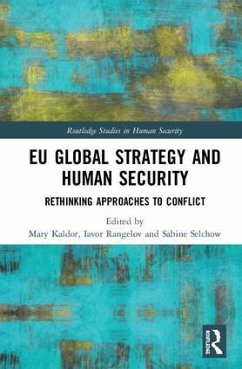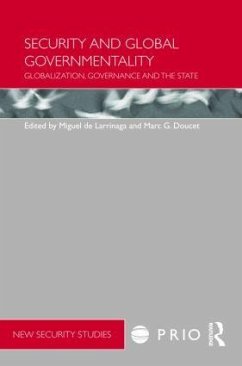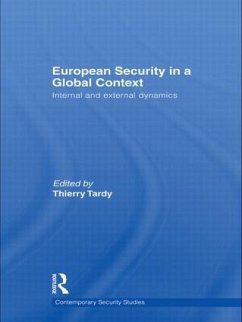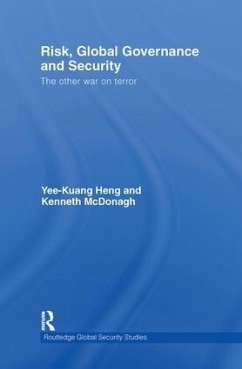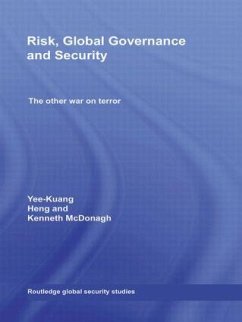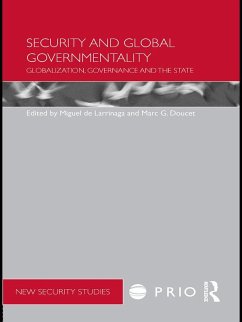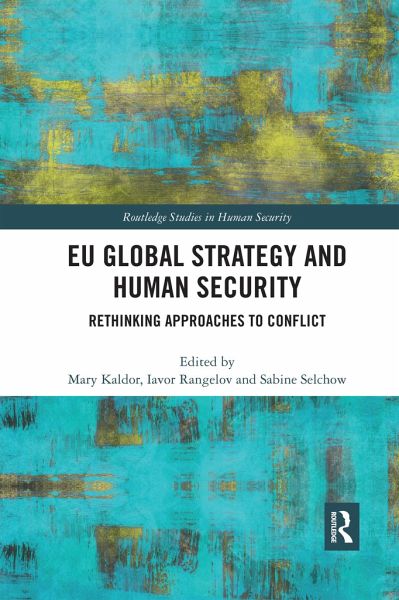
EU Global Strategy and Human Security
Rethinking Approaches to Conflict
Herausgeber: Kaldor, Mary; Selchow, Sabine; Rangelov, Iavor
Versandkostenfrei!
Versandfertig in 1-2 Wochen
55,99 €
inkl. MwSt.
Weitere Ausgaben:

PAYBACK Punkte
28 °P sammeln!
This volume examines the EU's Global Strategy in relation to human security approaches to conflict. Contemporary conflicts are best understood as a social condition in which armed groups mobilise sectarian and fundamentalist sentiments and construct a predatory economy through which they enrich themselves at the expense of ordinary citizens. This volume provides a timely contribution to debates over the role of the EU on the global stage and its contribution to peace and security, at a time when these discussions are reinvigorated by the adoption of the EU Global Strategy. It discusses the sig...
This volume examines the EU's Global Strategy in relation to human security approaches to conflict. Contemporary conflicts are best understood as a social condition in which armed groups mobilise sectarian and fundamentalist sentiments and construct a predatory economy through which they enrich themselves at the expense of ordinary citizens. This volume provides a timely contribution to debates over the role of the EU on the global stage and its contribution to peace and security, at a time when these discussions are reinvigorated by the adoption of the EU Global Strategy. It discusses the significance of the Strategic Review and the Global Strategy for the re-articulation of EU conflict prevention, crisis management, peacebuilding, and development policies in the next few years. It also addresses the key issues facing EU security in the 21st century, including the conflicts in Ukraine, Libya and Syria, border security, cyber-security and the role of the private security sector. The book concludes by proposing that the EU adopts a second-generation human security approach to conflicts, as an alternative to geopolitics or the 'War on Terror', taking forward the principles of human security and adapting them to 21st-century realities. This book will be of interest to students of human security, European foreign and security policy, peace and conflict studies, global governance and IR in general.





